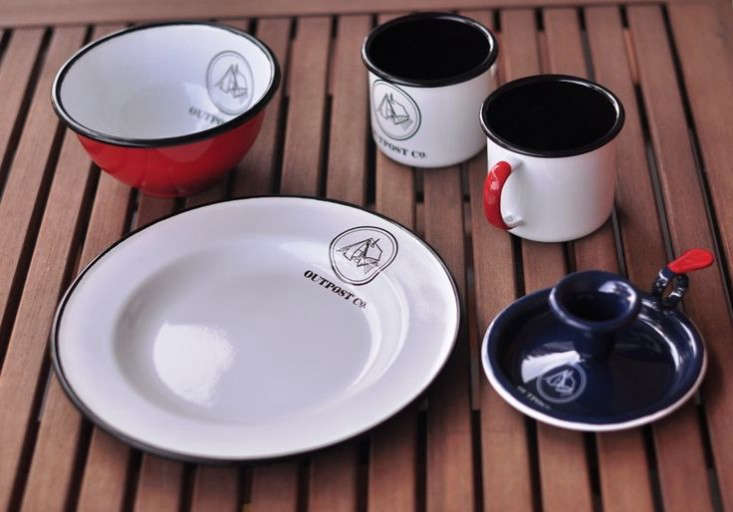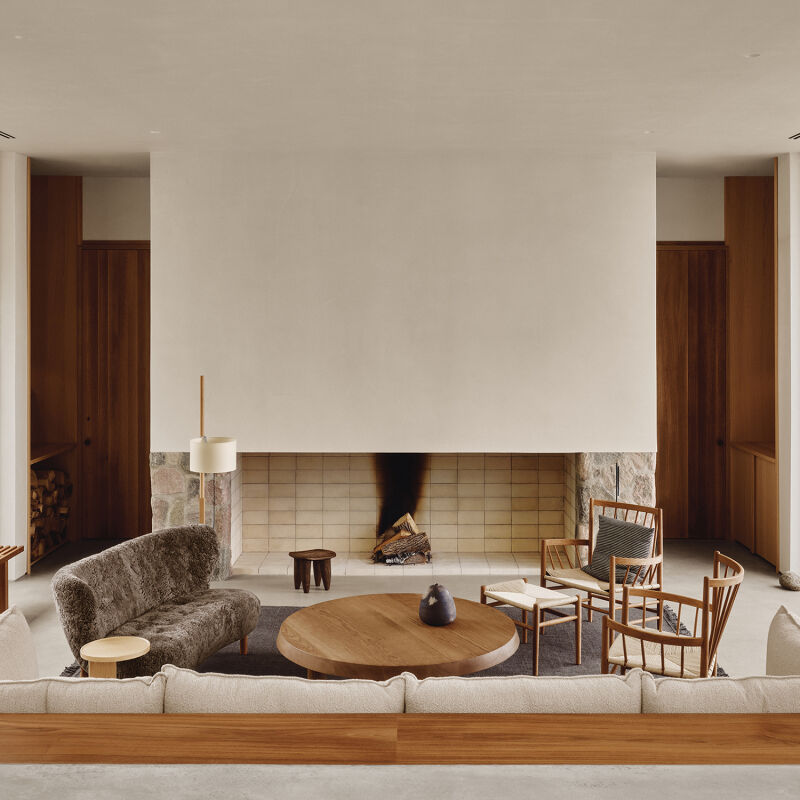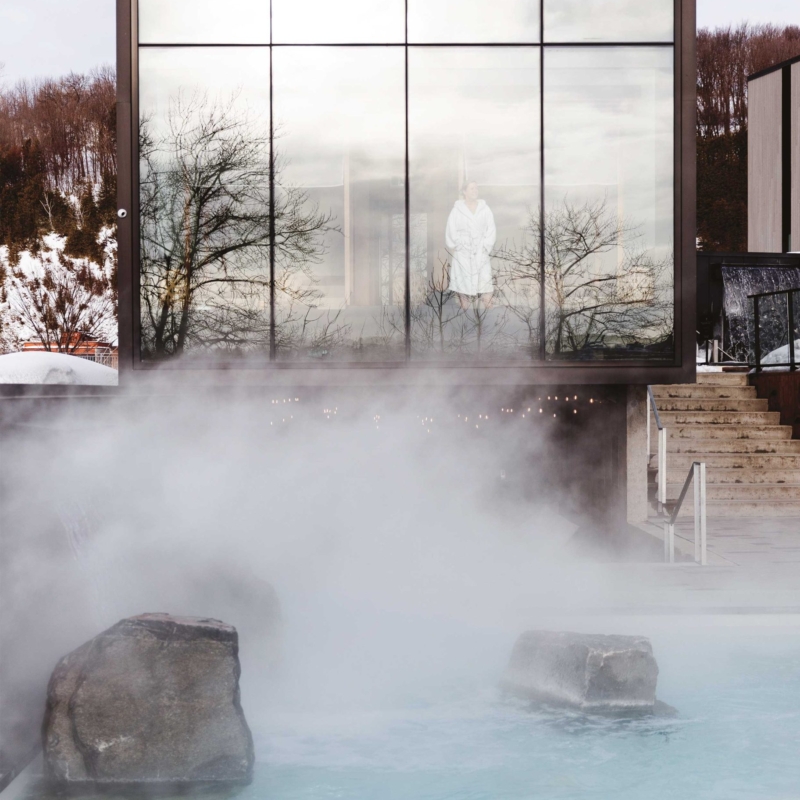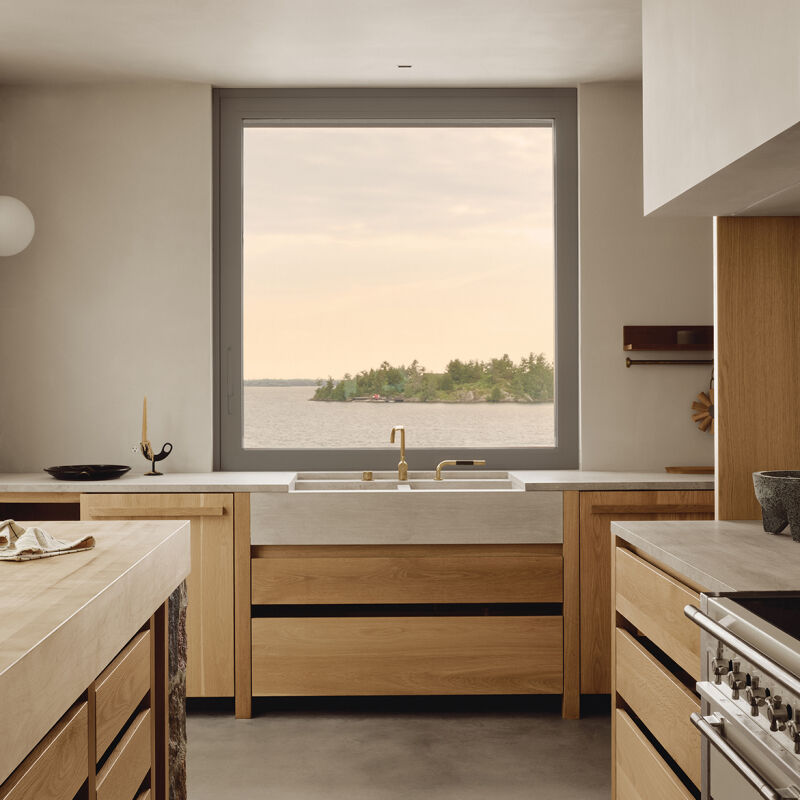Constantin von Flotow is an expert wilderness guide with a penchant for doing things the old-fashioned way, canvas tents and wooden gear boxes included (he tows these by vintage prop plane, horse, canoe, or sled). His new Toronto company, Outpost Co., is dedicated to reviving his style of camping by making it accessible and romantic–and even civilized. Ready to go on a Teddy Roosevelt-style adventure?
Outpost specializes in renting out 19th century-style tents, whether in the wild on custom trips led by Constantin, or in backyards or wedding sites: “The point,” says Constantin, “is to connect people with nature and give them an outdoor experience without the hassle or work.” What makes the Outpost way of doing things especially memorable is its signature wall tents: meticulously handmade canvas designs, they’re closely modeled on Civil War-era originals, down to the mahogany poles and brass rings. For those interested in purchasing their own gear, the company also offers customized, made-to-order canvas tents–plus advice on how and where to pitch them.
Photographs by Constantin von Flotow, unless noted.

Above: Outpost Canvas Tents are made of tightly woven army duck canvas detailed with a few modern adaptations, including a roof skylight and mosquito-screened windows. They have overhanging eaves to shed water away from the walls, and are held in place by hand-forged ferrous pegs as well as by a ring of mahogany poles. The tent is shown here on the McPhayden River in Northern Labrador, one of the many locations in Canada and elsewhere where Outpost leads custom trips (all gear and food included).

Above: The inside of the tents are furnished with beds (and Hudson’s Bay blankets), lanterns, sheepskin rugs, and wood-burning stoves. “Wall tents may not be the lightest equipment around, but they’re extremely beautiful and functional,” says Constantin.

Above: Yes, the tents are flame resistant. They’re also designed to withstand extreme temperatures and they don’t leak, even if you touch them when it’s raining.

Above: Manila rope tensioned with a wooden “dog bone” is part of the system holding up the tent. Photograph by Christian Simpson.

Above: The ropes are secured to hand-forged pegs with brass rings. Photograph by Christian Simpson.

Above: Outpost Co. also offers child-size canvas tepees that are scaled-down versions of tribal designs. They roll up into a compact bundle. Back story: After 20 years of guiding Antarctica expeditions and white-water rafting trips in Central America, Constantin is now married and has a 15-month-old son. This tepee was created for his son’s first wilderness experience. Photograph by Andrew Soule.

Above: The wanigan is a wood box used to store camping provisions; it’s wrapped with a tump line, a leather strap that goes over the head and works well for lugging heavy loads.”The wanigan box has a long tradition in Canada’s north as the preferred way to carry perishable items and kitchenware during extended canoe trips,” says Constantin. He and a group of fellow guides go on an annual outing–sometimes to the Arctic–and they always use canvas tents and wanigans.

Above: Meals are served on the company’s own enamelware. Sample menu: potato and caribou stew, rye bread, yellow birch tea, and cinnamon buns.

Above: An Outpost canoe piled with provisions plus a camping canine.

Above: For more information on the company’s tent rentals, bespoke trips, and custom tents, go to Outpost Co.
For more glamping opportunities, see Camping in Colorado, Glam Bedding Included and Shelter Co. in California. Have a look at our Camping posts for our Camp-Style Folding Chair, Classic Canvas Cot, and Sleeping Bag recommendations.
Like the idea of an Airstream adventure? Here are 10 Vintage Airstreams put to creative use.




Have a Question or Comment About This Post?
Join the conversation (6)